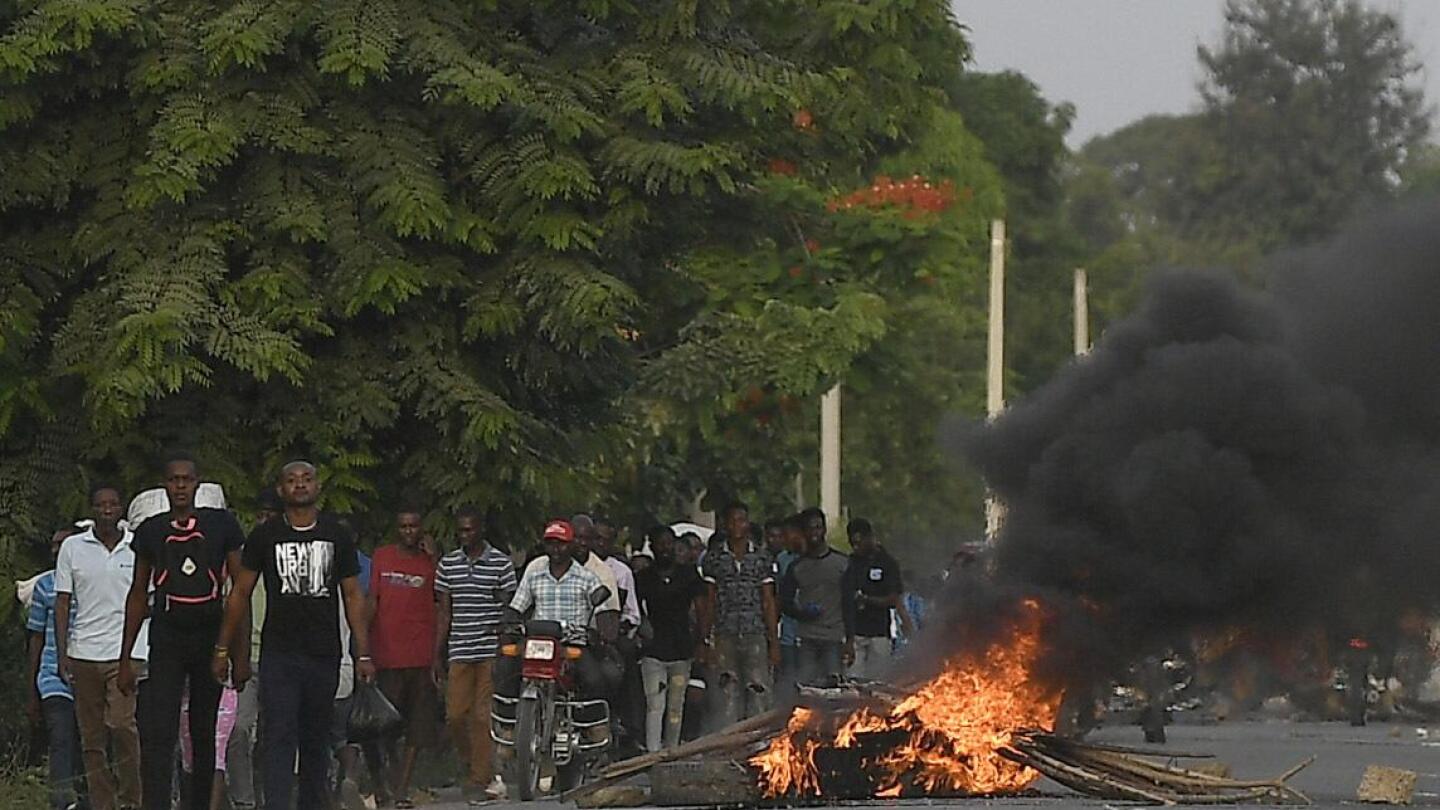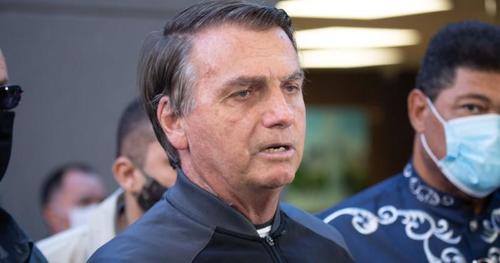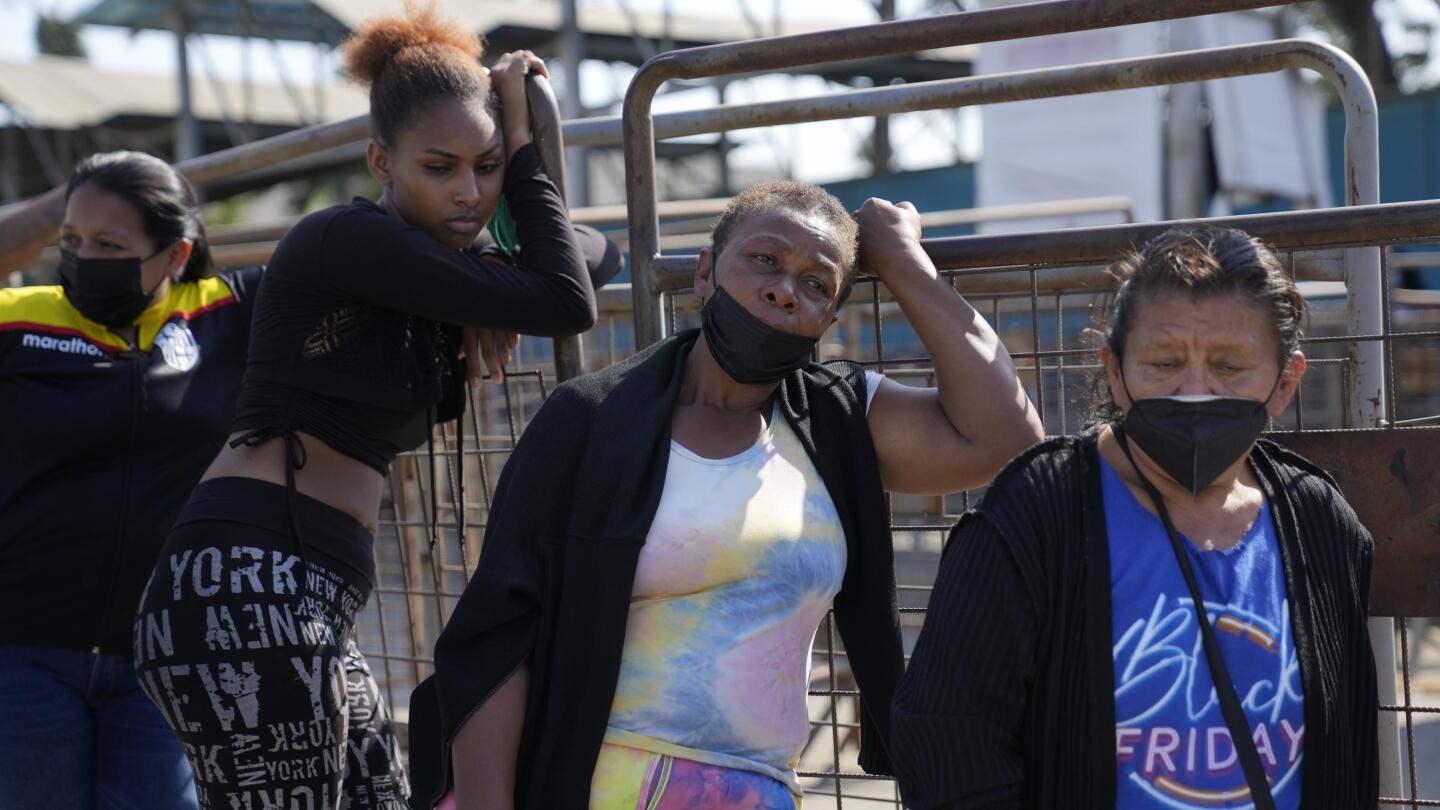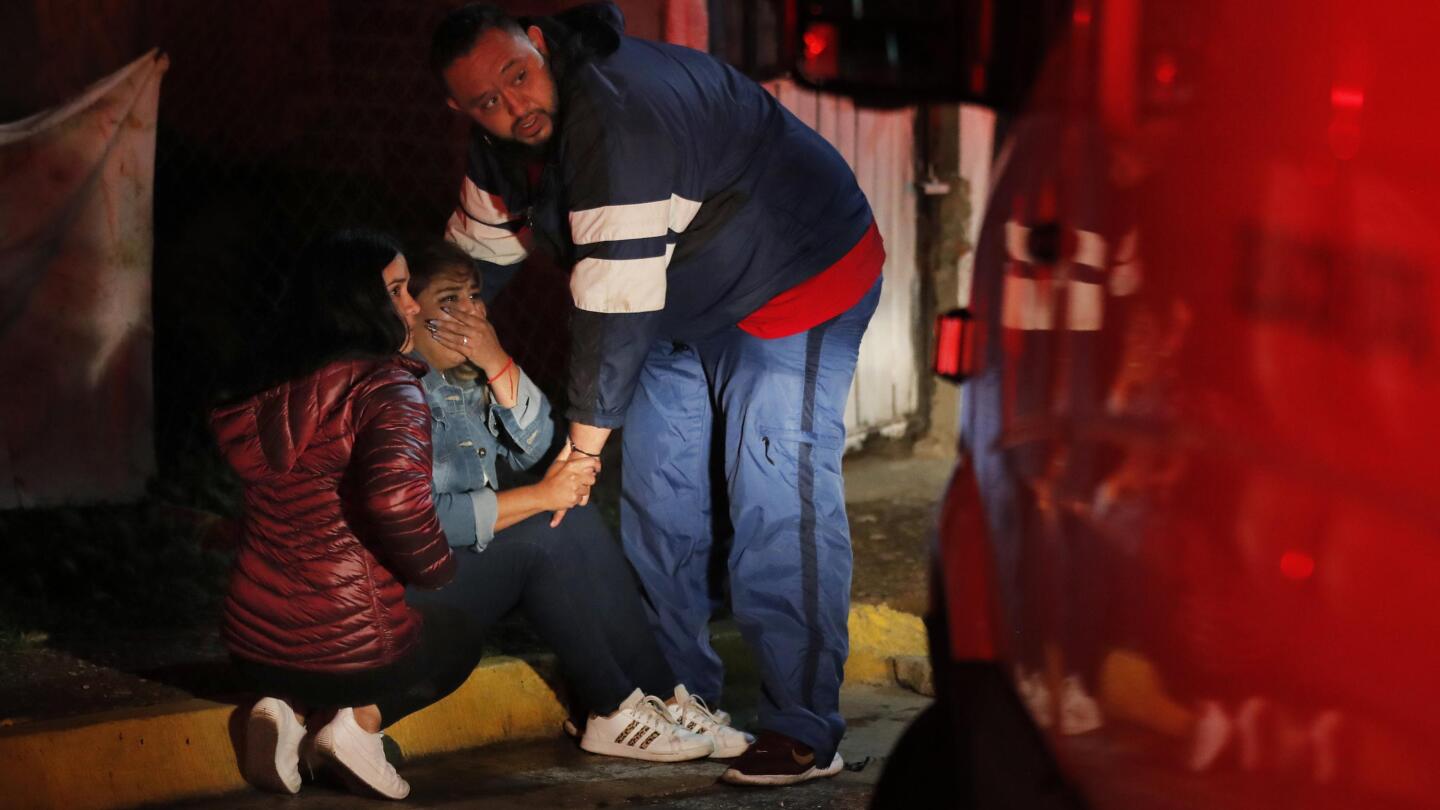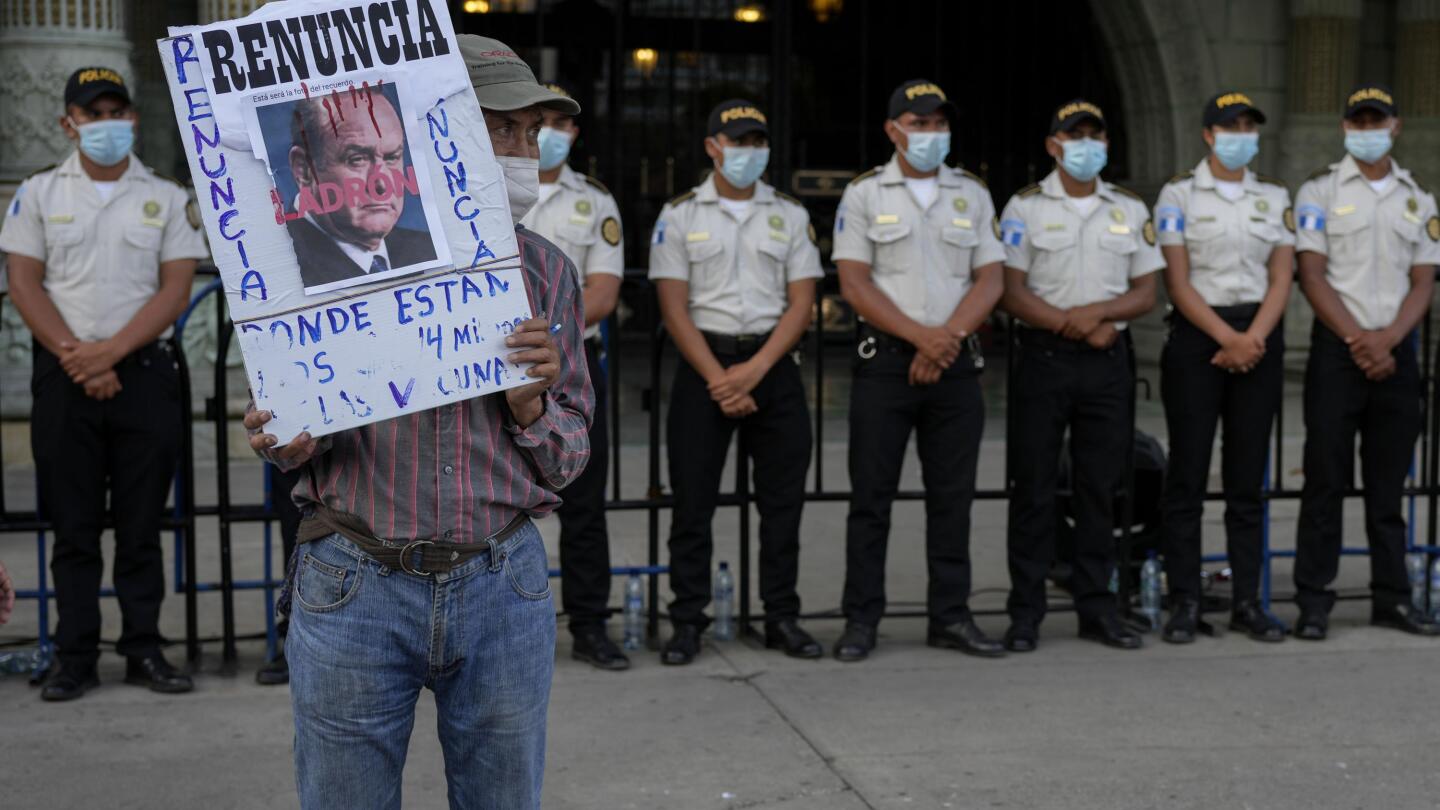Plain Jane
Just Plain Jane
June's thread is here:
 www.timebomb2000.com
www.timebomb2000.com
Main Coronavirus thread beginning page 1358:
 www.timebomb2000.com
www.timebomb2000.com
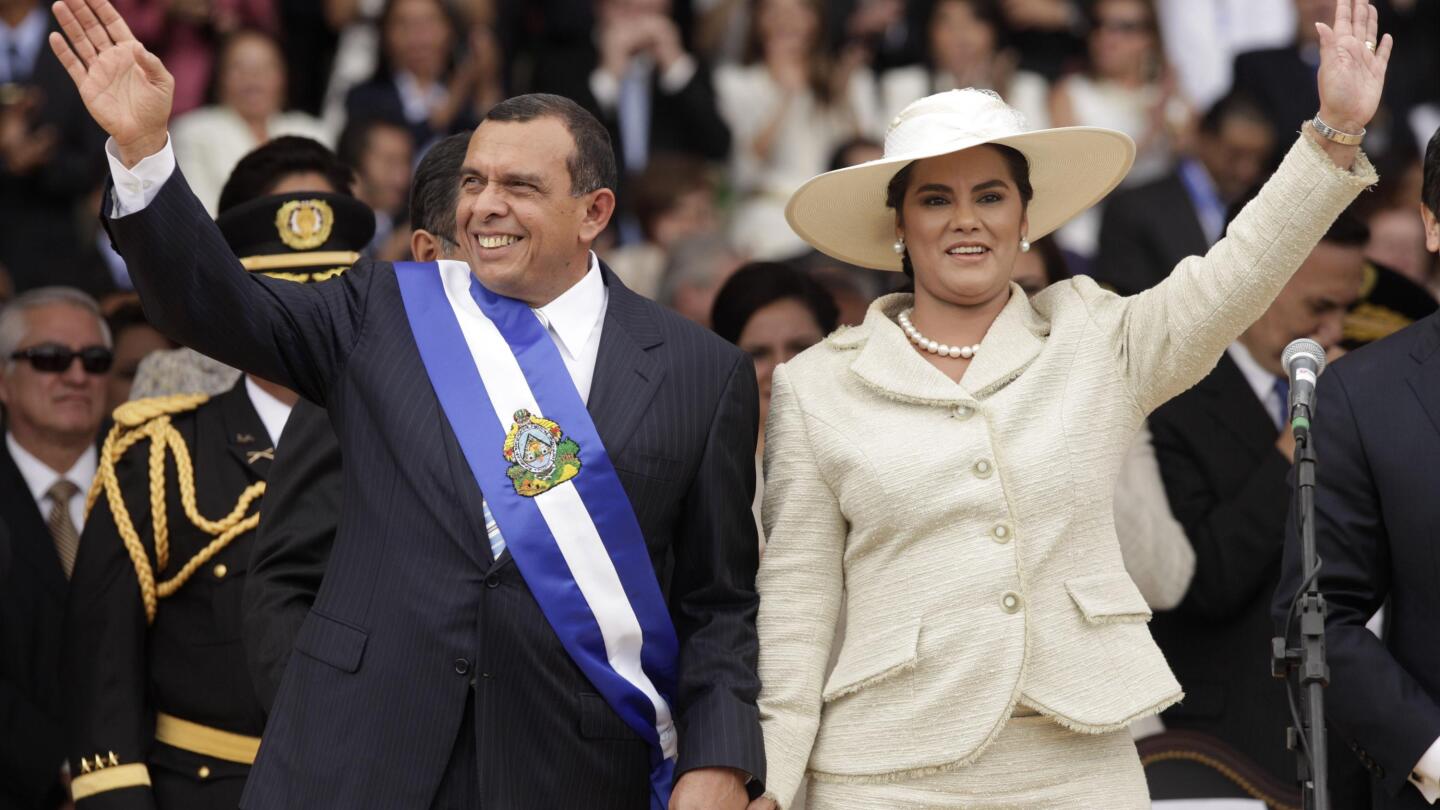
 apnews.com
apnews.com
US publishes list of corrupt officials in Central America
By SONIA PÉREZ D. and CHRISTOPHER SHERMANyesterday

FILE - In this Jan. 27, 2010 file photo, wearing the presidential sash, Honduran President Porfirio Lobo and his wife First Lady Rosa Elena wave after Lobo was sworn in as the new president during his inauguration ceremony in Tegucigalpa. The U.S. State Department has named in a report released on Thursday, July 1, 2021 more than 50 current and former officials suspected of corruption or undermining democracy in three Central American countries, including the former Honduran first couple, saying Lobo took bribes from a drug cartel and his wife was involved in fraud and misappropriation of funds. Both deny the allegations. (AP Photo/Arnulfo Franco, File)
GUATEMALA CITY (AP) — The U.S. State Department has named more than 50 current and former officials, including former presidents and active lawmakers, suspected of corruption or undermining democracy in three Central American countries.
Many of the cases were known in Guatemala, Honduras and El Salvador, but the inclusion of names on the U.S. list buoyed the hopes of anti-corruption crusaders. The list was provided to the U.S. Congress in compliance with the “U.S.-Northern Triangle Enhanced Engagement Act” pushed last year by U.S. Rep. Eliot Engel.
Its release comes at a time that the Biden administration has given new attention to endemic corruption in the region as one of the factors driving Central Americans to migrate to the U.S.
Ricardo Zúñiga, White House special envoy for the Northern Triangle, said Thursday that the list was not final and that pulling U.S. visas from those named does not exclude the possibility of other sanctions. The law requires the State Department to provide a list to Congress at least once a year.
The list was composed using classified and unclassified information and more attention was given to cases involving people currently in government or in positions close to power rather than older offenses, Zúñiga said.
“Corruption and attacks on democracy are viewed as some of the most important root causes of irregular migration from Central America,” he said. “They hobble governments, they distort markets, they undercut development efforts, and ultimately they demoralize a population that decides to embark on a very dangerous irregular migration to Mexico and the United States because they don’t believe we can build their futures at home.”
Congress’ call for the report reflects growing concern “about the level of systemic corruption in the countries of the Northern Triangle, the significant backsliding that we’ve seen across the region in the last several years,” and the need to “ensure that our assistance is not ending up in the pockets of corrupt officials or their allies,” said Adriana Beltran, director of citizen security at the Washington Office on Latin America, a nongovernmental organization focused on human rights issues.
Among the most prominent figures on the list are former Honduras President Porfirio “Pepe” Lobo Sosa and former first lady Rosa Elena Bonilla de Lobo. The State Department report says Lobo Sosa took bribes from a drug cartel and his wife was involved in fraud and misappropriation of funds. Both deny the allegations. Bonilla’s conviction on related charges was invalidated by the Supreme Court last year and she is awaiting a new trial.
Perhaps as significant as Lobo Sosa’s inclusion or that of more than a dozen current lawmakers, was the omission of current Honduras President Juan Orlando Hernández. U.S. prosecutors in New York have signaled Hernández as having funded his political ascent with bribes from drug traffickers, but he has not been formally charged.
He has denied any wrongdoing. His brother, former federal lawmaker Juan Antonio “Tony” Hernández, was sentenced in New York in March to life in prison.
Honduras analyst Raúl Pineda Alvarado, said there had been high expectations for the list, but that in general it did not include the top perpetrators, leaving him underwhelmed: “If this is the way the United States Congress wants to battle corruption in Honduras, it’s like wanting to cure cancer with aspirin.”
Instead of naming those who call the shots and control resources, most of the names were “secondary perpetrators,” he said.
“This Engel list, in a way, was very inspiring, you thought it would be a devastating blow to the real corruption heavyweights,” Pineda said. “But unfortunately those hopes have been frustrated.”
In El Salvador, former cabinet officials, a judge and the cabinet chief for President Nayib Bukele were placed on the list. Chief of Staff Carolina Recinos has kept a low profile since her name appeared on a shorter State Department list in May, but administration officials say she has maintained her presence in the presidential offices.
Thursday’s list said she “engaged in significant corruption by misusing public funds for personal benefit” and participated in a money laundering scheme.
The list also included two former presidents of the Legislative Assembly, including Walter Araujo who left the conservative Arena party to become a high-profile leader of Bukele’s New Ideas party.
The list said Araujo was included for “calling for insurrection against the Legislative Assembly and repeatedly threatening political candidates.” Araujo reacted on Twitter, saying that “gringos” and unscrupulous journalists wouldn’t silence him.
“If for defending my nation and my people they put me on the Engel list ... they can put me there 100 times more,” he wrote.
Jean Manes, former U.S. ambassador to El Salvador, who recently returned temporarily as the charges d’ affaires, said in a video statement that U.S. strategy in the region centers on battling corruption because it is the greatest impediment to development.
She noted that people included on the list “immediately lose their visa to enter the United States.”
Eduardo Escobar, head of the public accountability organization Citizen Action in El Salvador, said he had met Wednesday with U.S. Undersecretary of State for Political Affairs Victoria Nuland on her visit to the country.
Escobar said that in some cases, the list lent credence to allegations that members of Bukele’s government were involved in corruption, as well as members of other political parties. He said now they would have to see if El Salvador’s Attorney General’s Office takes any action to pursue people on the list.
Bukele’s administration did not immediately respond to a request for comment.
In Guatemala, former President Alvaro Colom Caballeros, was accused of involvement in fraud and embezzlement in the case of a new bus system in Guatemala City. Current Supreme Court justice Manuel Duarte Barrera allegedly “abused his authority to inappropriately influence and manipulate the appointment of judges to high court positions.” Another high court justice, Nester Vásquez, also allegedly meddled in the selection of judges.
Guatemala’s chief anti-impunity prosecutor, Juan Francisco Sandoval, indicated the extent of Guatemala’s corruption was far beyond those named on the list.
“I think they are missing a number who have been charged with corruption,” Sandoval said. “In the prosecutor’s office, we investigate hundreds of people and hundreds more have been convicted. I think they need to touch the high positions in the corrupt structures, especially those who finance it.”
__
Sherman reported from Mexico City. AP writers Marcos Aleman in San Salvador and Marlon González in Honduras contributed to this report.
INTL - Latin America and the Islands: Politics, Economics, Military- June 2021
May's thread is here: https://www.timebomb2000.com/xf/index.php?threads/latin-america-and-the-islands-politics-economics-military-may-2021.600148/ Main Coronavirus thread beginning page 1351: https://www.timebomb2000.com/xf/index.php?threads/main-coronavirus-thread.566780/page-1351...
Main Coronavirus thread beginning page 1358:
CORONA - Main Coronavirus thread
Explosive Report: China Discussed Making Bioweapons to Target Certain Races Explosive Report: China Discussed Making Bioweapons to Target Certain Races by Matt PalumboPosted: June 28, 2021 If a new report is to be believed, China may have far more to answer for than just COVID-19. Rumble video...

US publishes list of corrupt officials in Central America
GUATEMALA CITY (AP) — The U.S. State Department has named more than 50 current and former officials, including former presidents and active lawmakers, suspected of corruption or undermining democracy in three Central American countries.
US publishes list of corrupt officials in Central America
By SONIA PÉREZ D. and CHRISTOPHER SHERMANyesterday

FILE - In this Jan. 27, 2010 file photo, wearing the presidential sash, Honduran President Porfirio Lobo and his wife First Lady Rosa Elena wave after Lobo was sworn in as the new president during his inauguration ceremony in Tegucigalpa. The U.S. State Department has named in a report released on Thursday, July 1, 2021 more than 50 current and former officials suspected of corruption or undermining democracy in three Central American countries, including the former Honduran first couple, saying Lobo took bribes from a drug cartel and his wife was involved in fraud and misappropriation of funds. Both deny the allegations. (AP Photo/Arnulfo Franco, File)
GUATEMALA CITY (AP) — The U.S. State Department has named more than 50 current and former officials, including former presidents and active lawmakers, suspected of corruption or undermining democracy in three Central American countries.
Many of the cases were known in Guatemala, Honduras and El Salvador, but the inclusion of names on the U.S. list buoyed the hopes of anti-corruption crusaders. The list was provided to the U.S. Congress in compliance with the “U.S.-Northern Triangle Enhanced Engagement Act” pushed last year by U.S. Rep. Eliot Engel.
Its release comes at a time that the Biden administration has given new attention to endemic corruption in the region as one of the factors driving Central Americans to migrate to the U.S.
Ricardo Zúñiga, White House special envoy for the Northern Triangle, said Thursday that the list was not final and that pulling U.S. visas from those named does not exclude the possibility of other sanctions. The law requires the State Department to provide a list to Congress at least once a year.
The list was composed using classified and unclassified information and more attention was given to cases involving people currently in government or in positions close to power rather than older offenses, Zúñiga said.
“Corruption and attacks on democracy are viewed as some of the most important root causes of irregular migration from Central America,” he said. “They hobble governments, they distort markets, they undercut development efforts, and ultimately they demoralize a population that decides to embark on a very dangerous irregular migration to Mexico and the United States because they don’t believe we can build their futures at home.”
Congress’ call for the report reflects growing concern “about the level of systemic corruption in the countries of the Northern Triangle, the significant backsliding that we’ve seen across the region in the last several years,” and the need to “ensure that our assistance is not ending up in the pockets of corrupt officials or their allies,” said Adriana Beltran, director of citizen security at the Washington Office on Latin America, a nongovernmental organization focused on human rights issues.
Among the most prominent figures on the list are former Honduras President Porfirio “Pepe” Lobo Sosa and former first lady Rosa Elena Bonilla de Lobo. The State Department report says Lobo Sosa took bribes from a drug cartel and his wife was involved in fraud and misappropriation of funds. Both deny the allegations. Bonilla’s conviction on related charges was invalidated by the Supreme Court last year and she is awaiting a new trial.
Perhaps as significant as Lobo Sosa’s inclusion or that of more than a dozen current lawmakers, was the omission of current Honduras President Juan Orlando Hernández. U.S. prosecutors in New York have signaled Hernández as having funded his political ascent with bribes from drug traffickers, but he has not been formally charged.
He has denied any wrongdoing. His brother, former federal lawmaker Juan Antonio “Tony” Hernández, was sentenced in New York in March to life in prison.
Honduras analyst Raúl Pineda Alvarado, said there had been high expectations for the list, but that in general it did not include the top perpetrators, leaving him underwhelmed: “If this is the way the United States Congress wants to battle corruption in Honduras, it’s like wanting to cure cancer with aspirin.”
Instead of naming those who call the shots and control resources, most of the names were “secondary perpetrators,” he said.
“This Engel list, in a way, was very inspiring, you thought it would be a devastating blow to the real corruption heavyweights,” Pineda said. “But unfortunately those hopes have been frustrated.”
In El Salvador, former cabinet officials, a judge and the cabinet chief for President Nayib Bukele were placed on the list. Chief of Staff Carolina Recinos has kept a low profile since her name appeared on a shorter State Department list in May, but administration officials say she has maintained her presence in the presidential offices.
Thursday’s list said she “engaged in significant corruption by misusing public funds for personal benefit” and participated in a money laundering scheme.
The list also included two former presidents of the Legislative Assembly, including Walter Araujo who left the conservative Arena party to become a high-profile leader of Bukele’s New Ideas party.
The list said Araujo was included for “calling for insurrection against the Legislative Assembly and repeatedly threatening political candidates.” Araujo reacted on Twitter, saying that “gringos” and unscrupulous journalists wouldn’t silence him.
“If for defending my nation and my people they put me on the Engel list ... they can put me there 100 times more,” he wrote.
Jean Manes, former U.S. ambassador to El Salvador, who recently returned temporarily as the charges d’ affaires, said in a video statement that U.S. strategy in the region centers on battling corruption because it is the greatest impediment to development.
She noted that people included on the list “immediately lose their visa to enter the United States.”
Eduardo Escobar, head of the public accountability organization Citizen Action in El Salvador, said he had met Wednesday with U.S. Undersecretary of State for Political Affairs Victoria Nuland on her visit to the country.
Escobar said that in some cases, the list lent credence to allegations that members of Bukele’s government were involved in corruption, as well as members of other political parties. He said now they would have to see if El Salvador’s Attorney General’s Office takes any action to pursue people on the list.
Bukele’s administration did not immediately respond to a request for comment.
In Guatemala, former President Alvaro Colom Caballeros, was accused of involvement in fraud and embezzlement in the case of a new bus system in Guatemala City. Current Supreme Court justice Manuel Duarte Barrera allegedly “abused his authority to inappropriately influence and manipulate the appointment of judges to high court positions.” Another high court justice, Nester Vásquez, also allegedly meddled in the selection of judges.
Guatemala’s chief anti-impunity prosecutor, Juan Francisco Sandoval, indicated the extent of Guatemala’s corruption was far beyond those named on the list.
“I think they are missing a number who have been charged with corruption,” Sandoval said. “In the prosecutor’s office, we investigate hundreds of people and hundreds more have been convicted. I think they need to touch the high positions in the corrupt structures, especially those who finance it.”
__
Sherman reported from Mexico City. AP writers Marcos Aleman in San Salvador and Marlon González in Honduras contributed to this report.




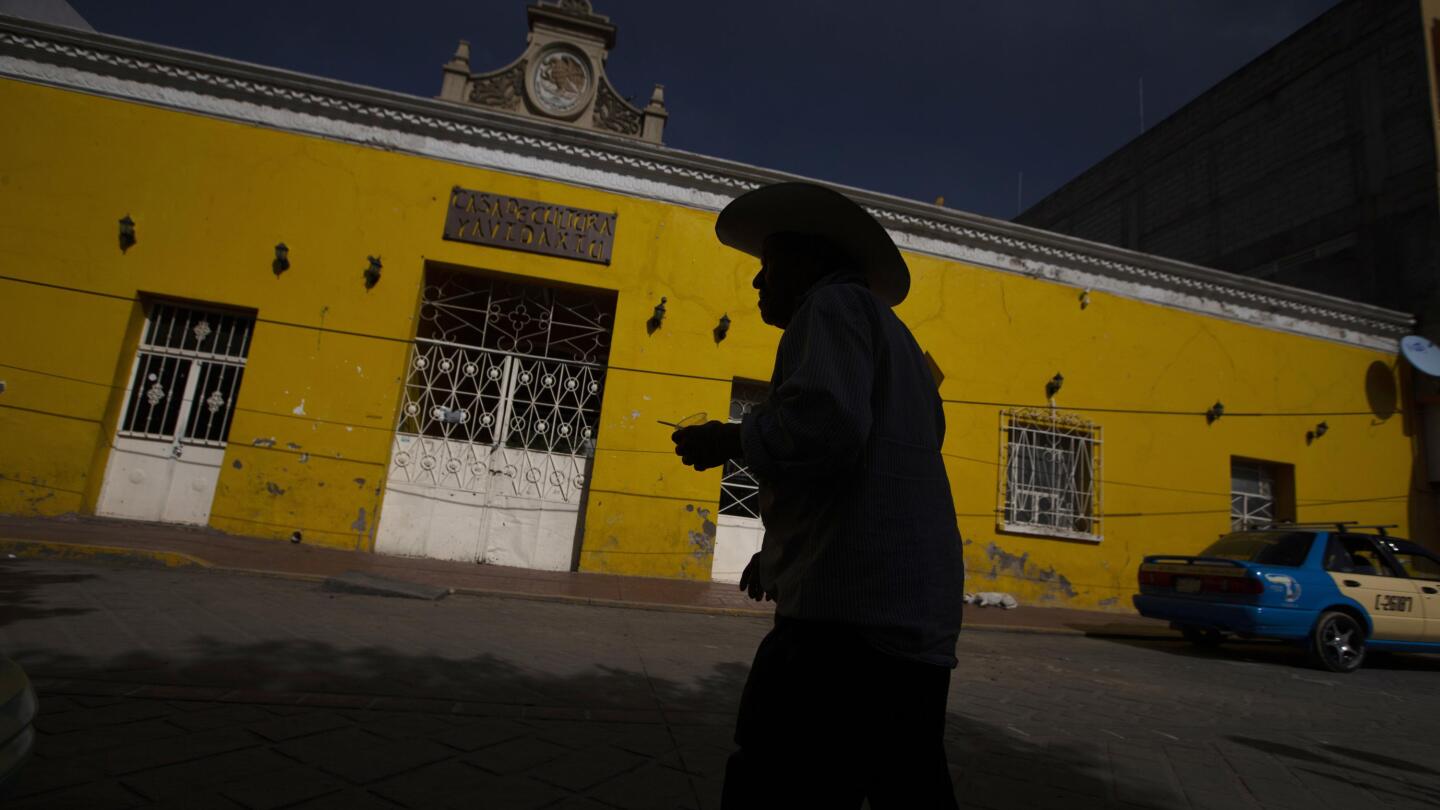

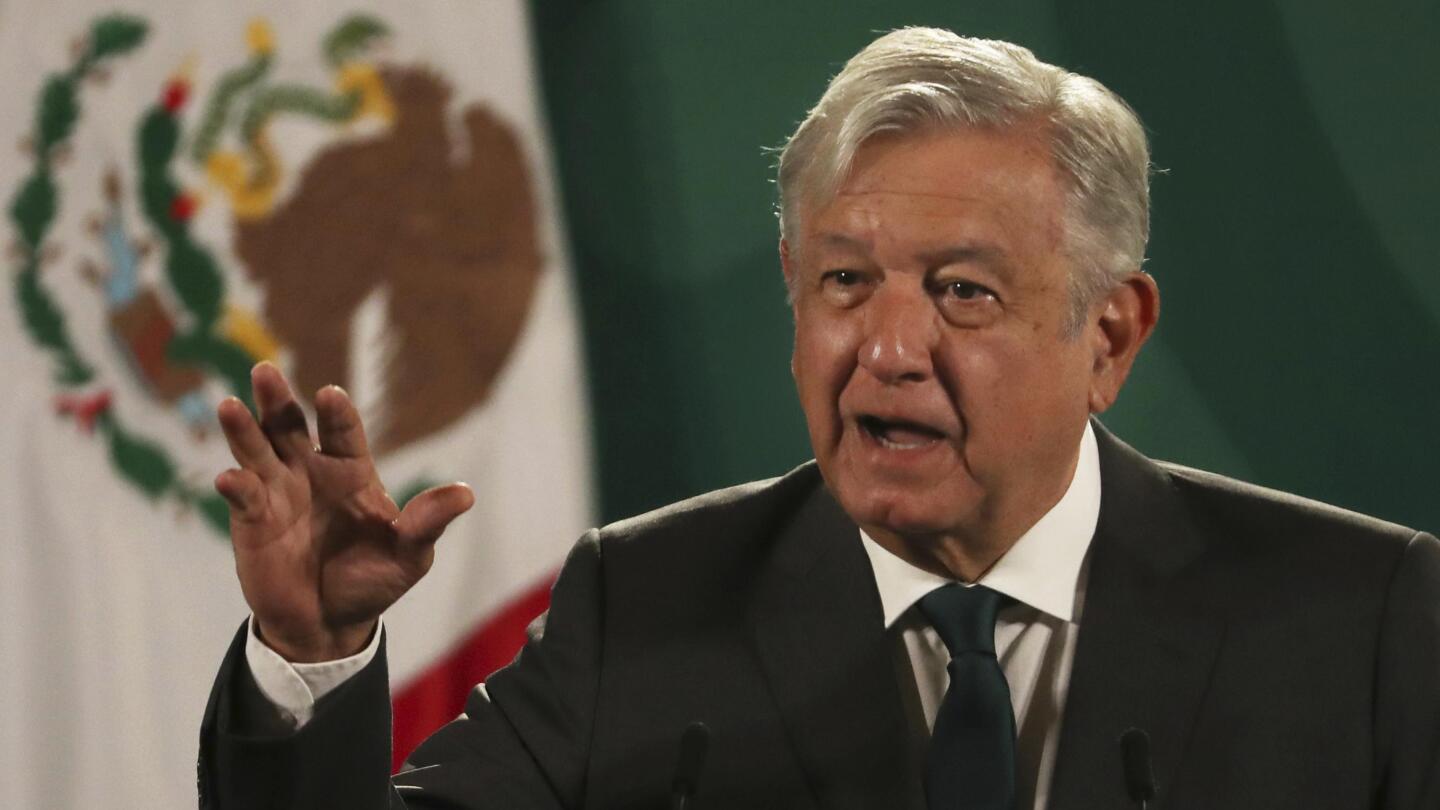


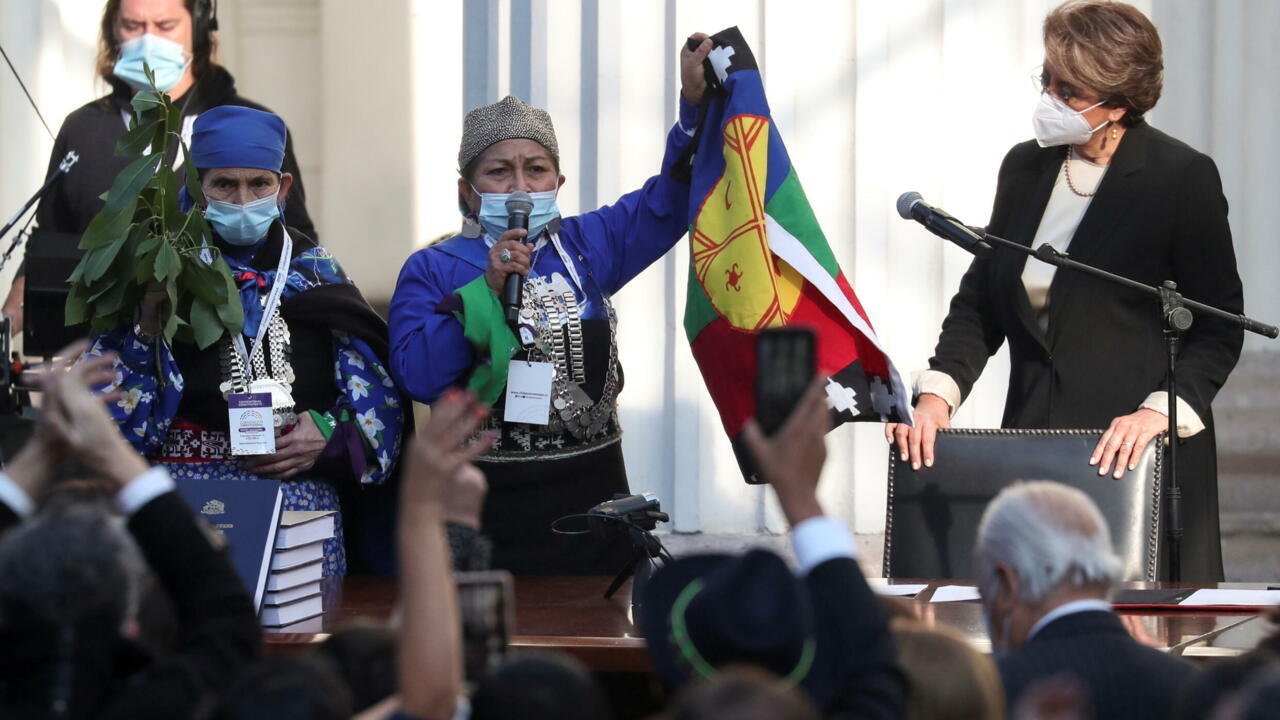



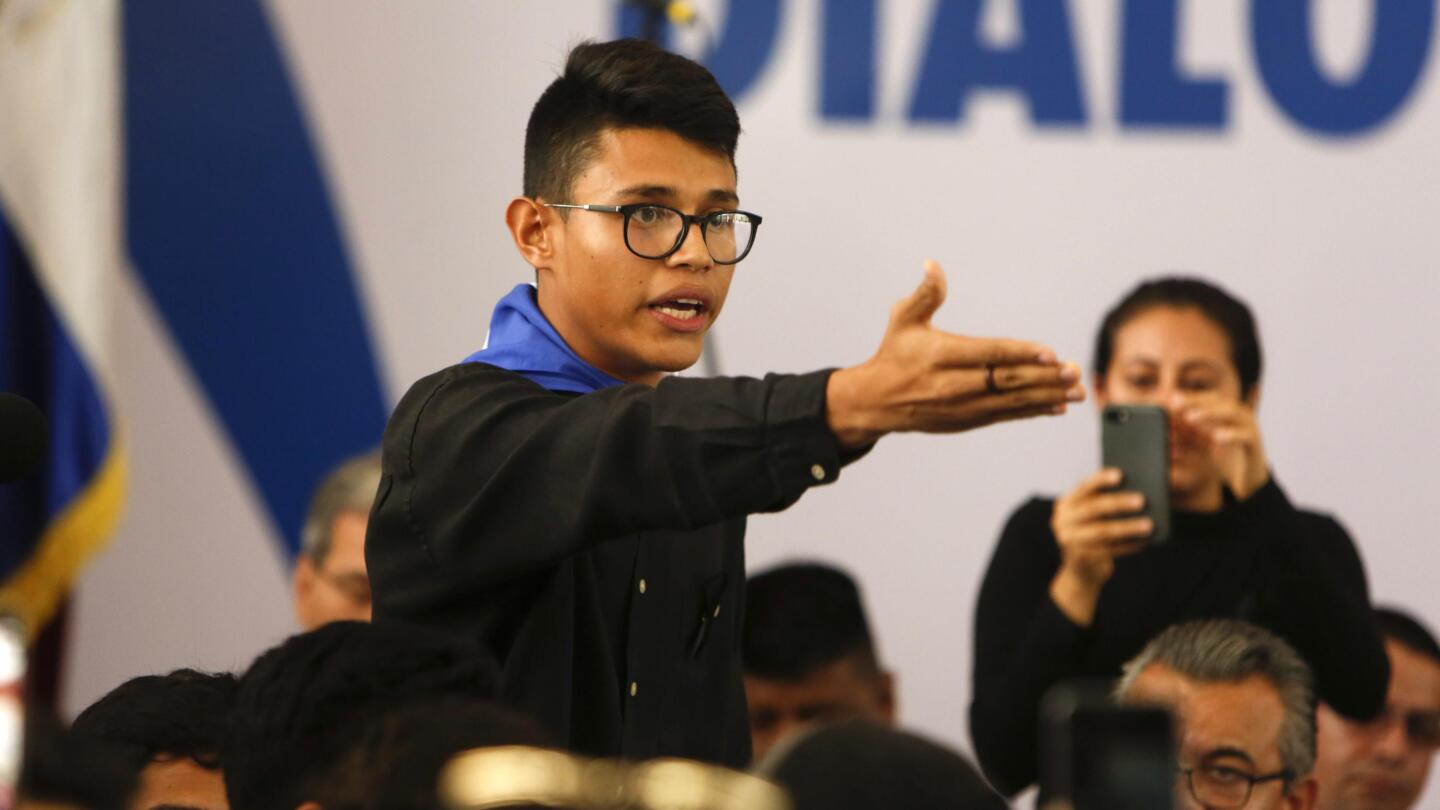



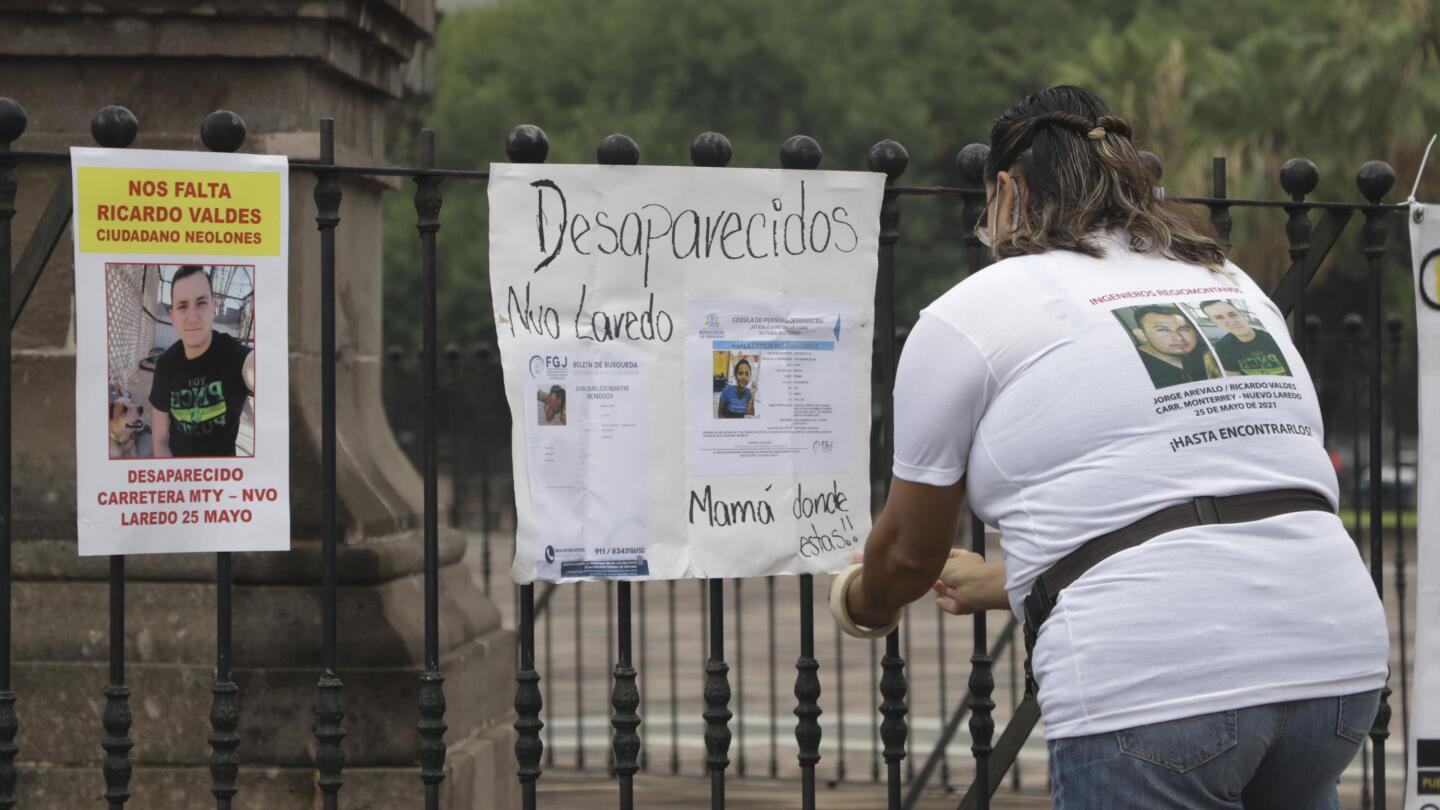

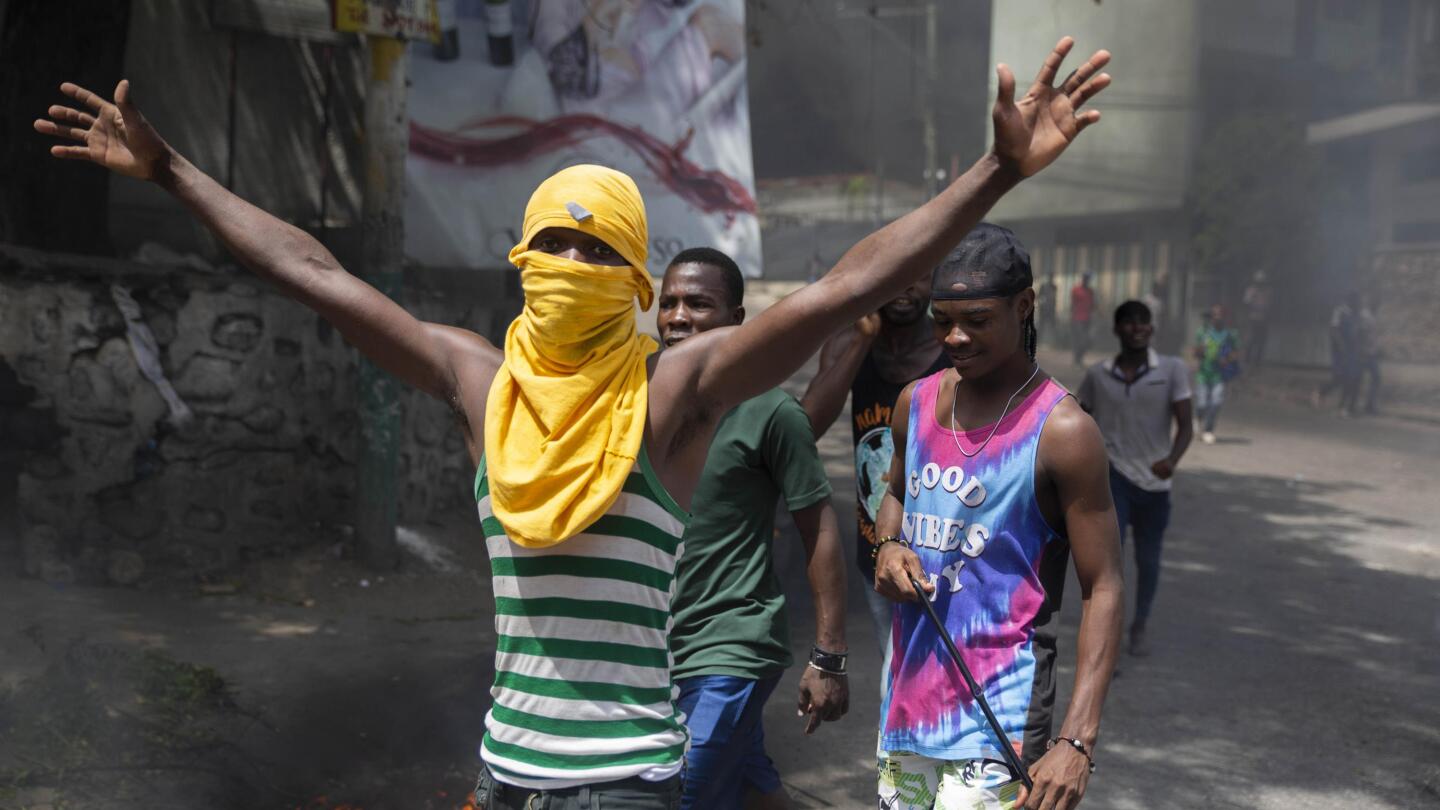









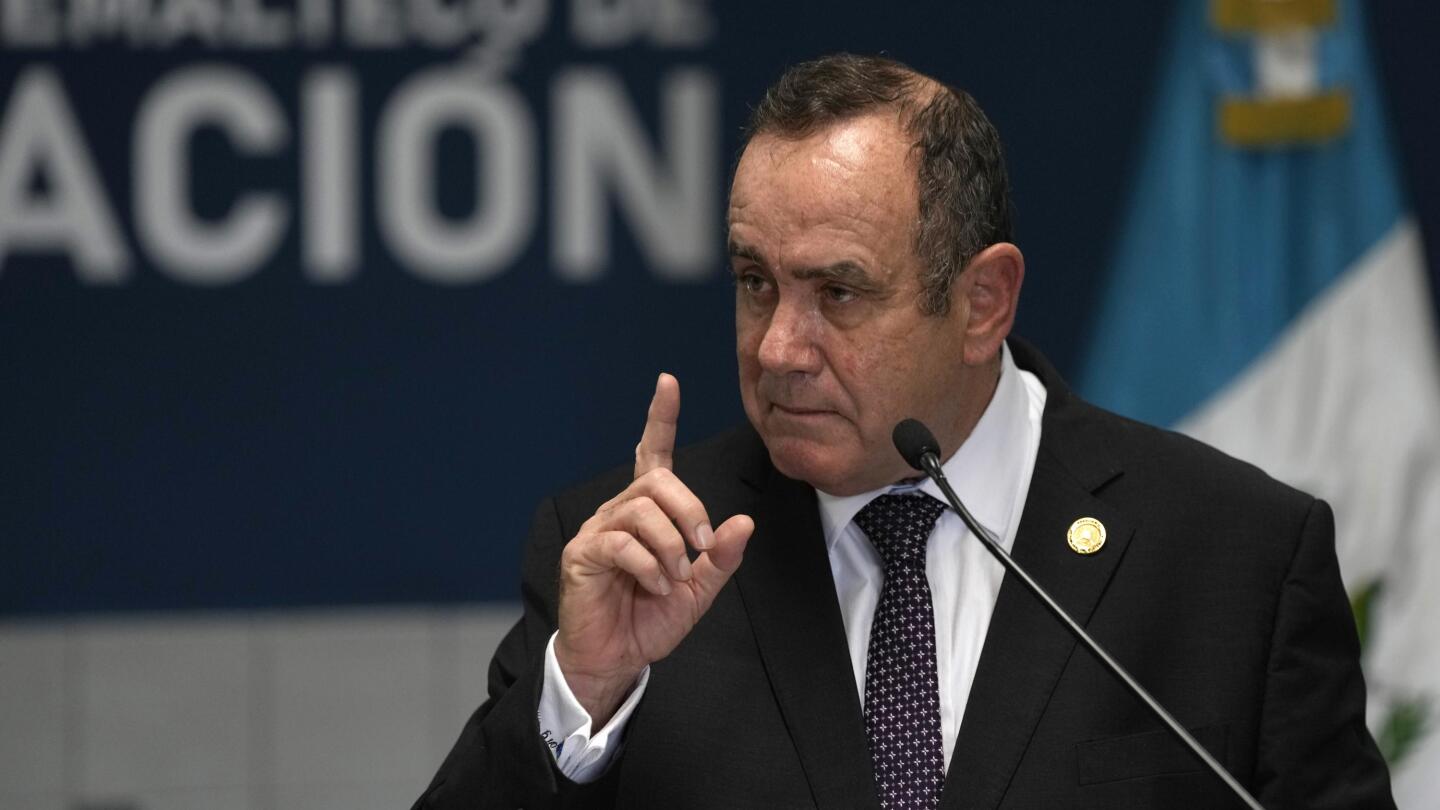



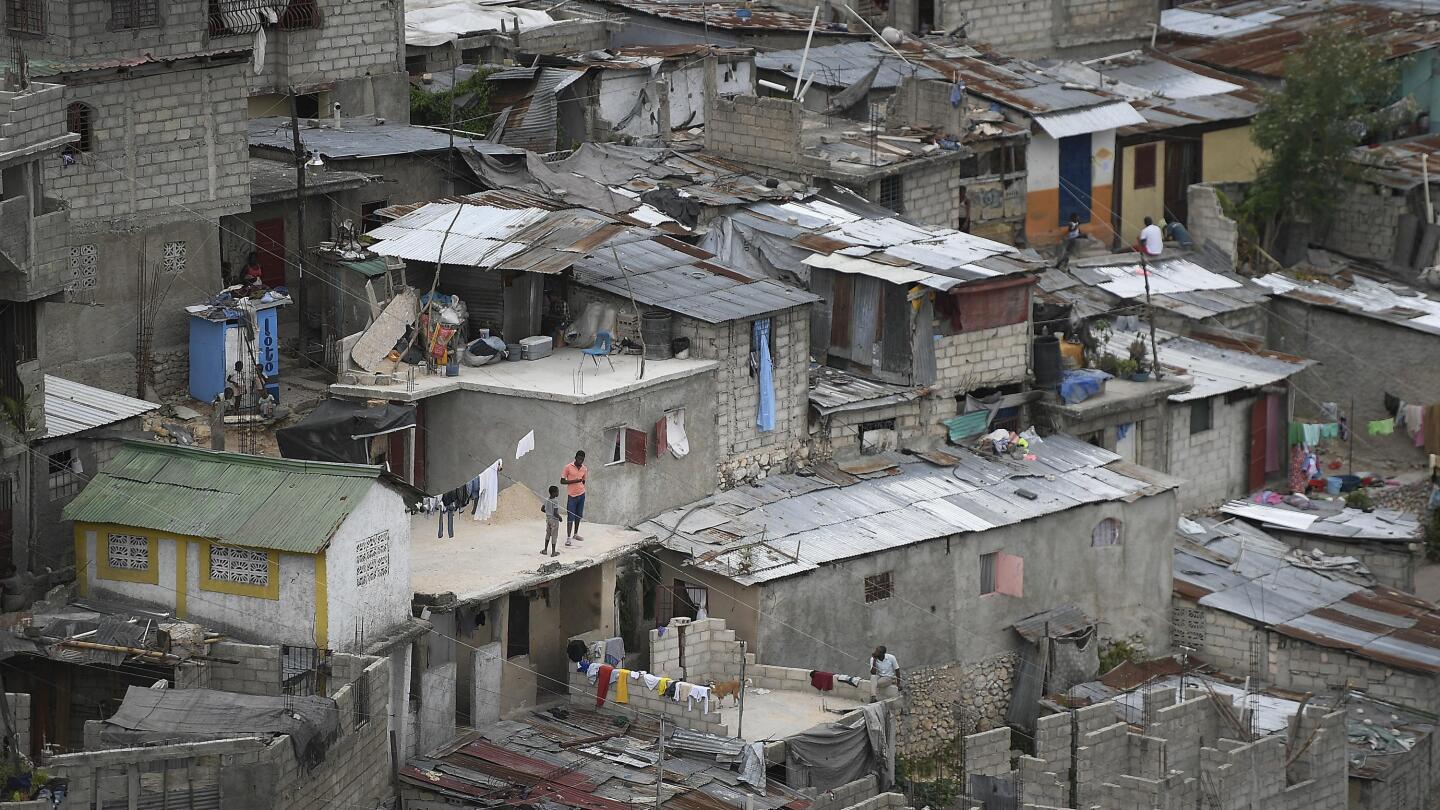

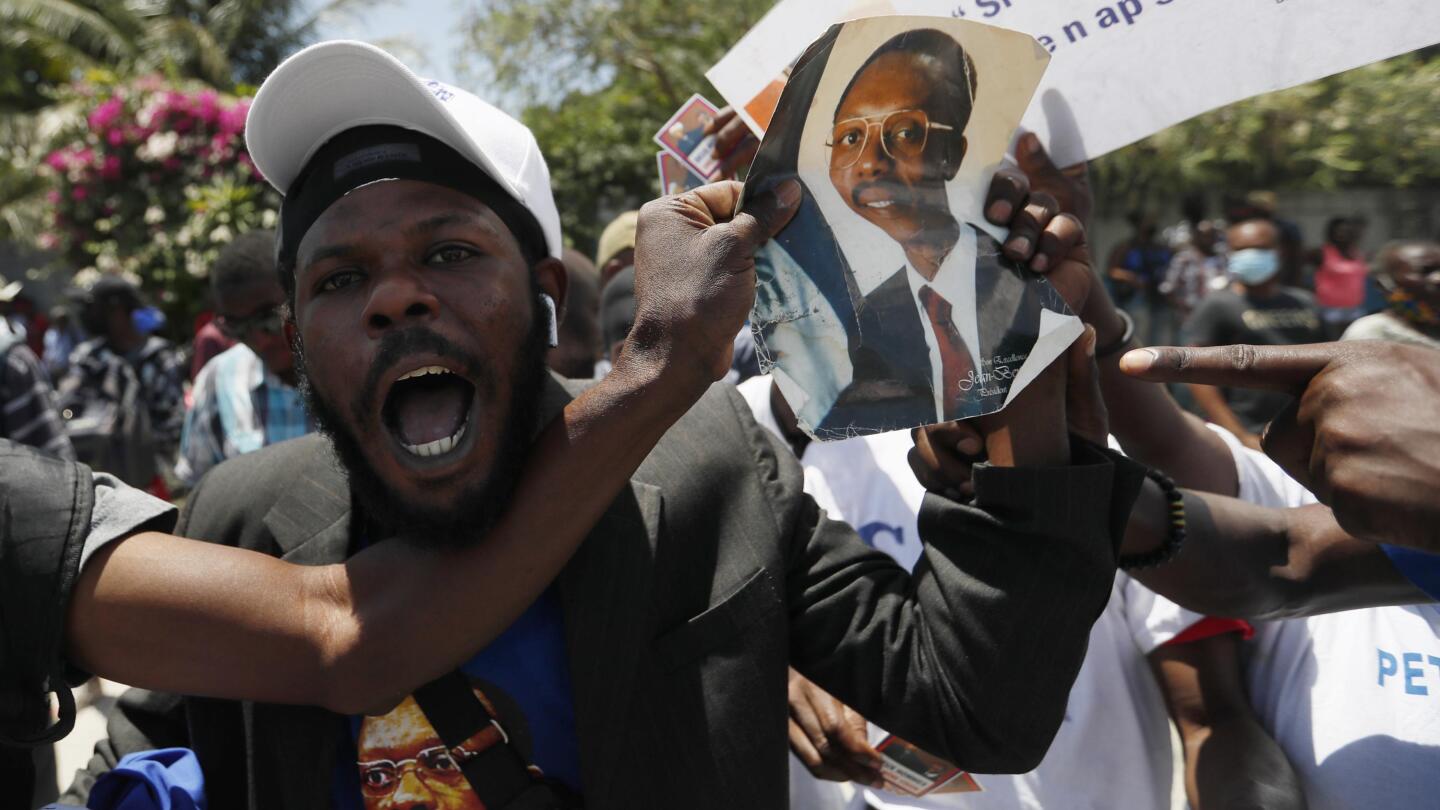









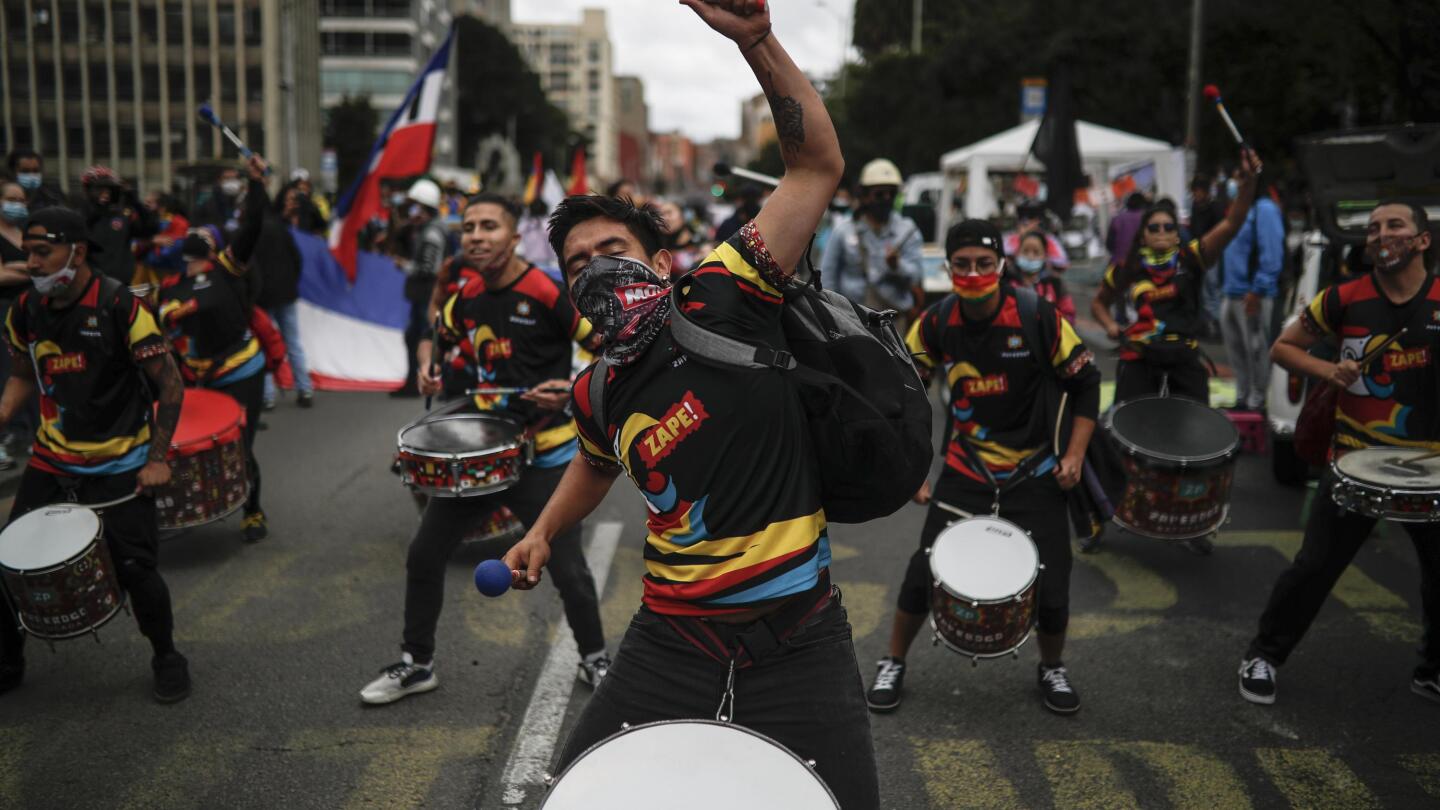

/cloudfront-us-east-2.images.arcpublishing.com/reuters/WRBQ7XZRZRMJZI57A7PUT77PCU.jpg)

